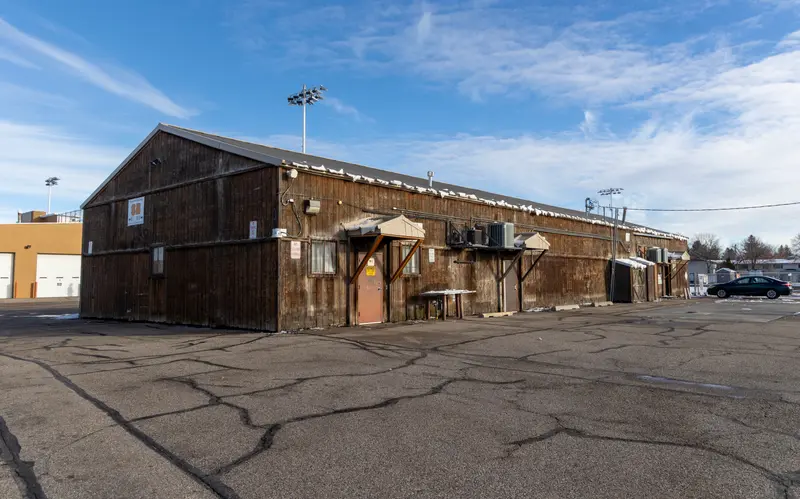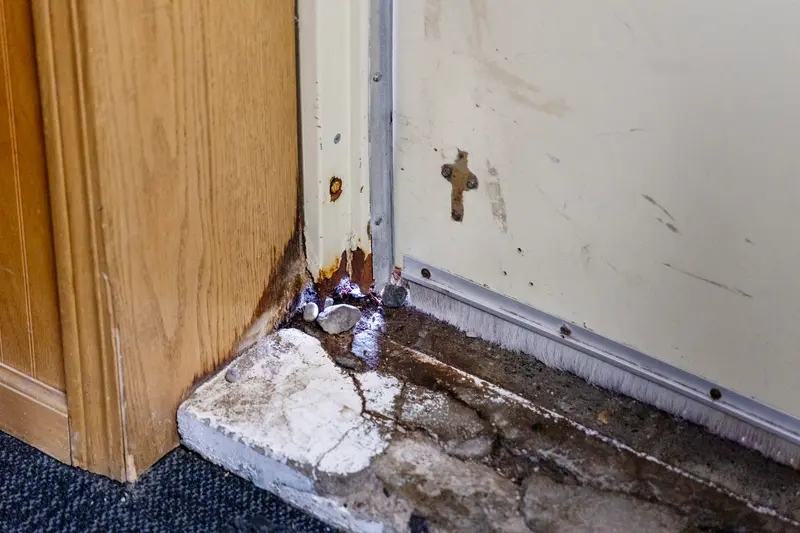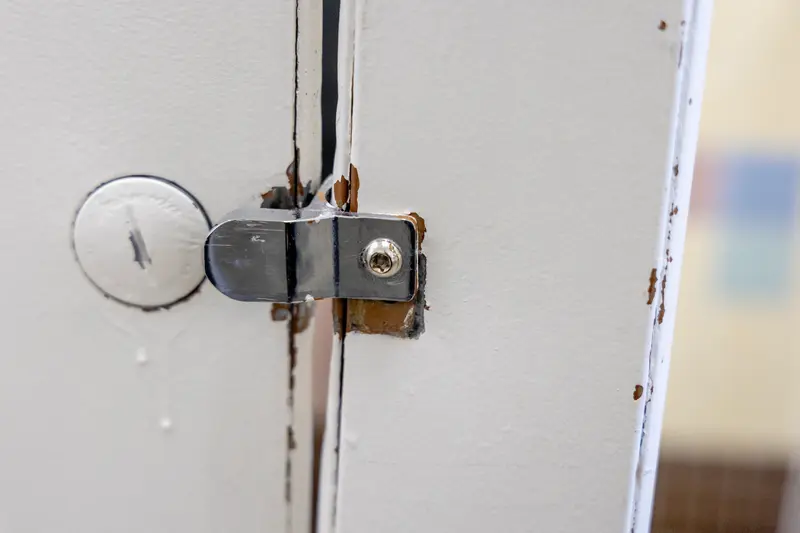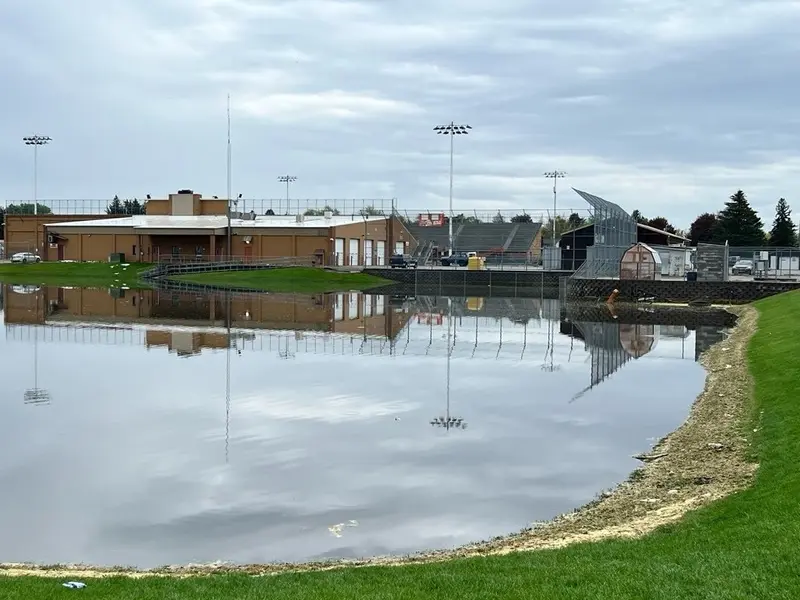This article was produced for ProPublica’s Local Reporting Network in partnership with the Idaho Statesman. Sign up for Dispatches to get stories like this one as soon as they are published.
The blue and orange leaflets that arrived in Idaho Falls mailboxes ahead of the school bond election in November 2022 looked like the usual fare that voters across the country get. Sent out by the school district, the mailers encouraged people in the eastern Idaho city to register to vote and listed bullet points highlighting what the bond would pay for.
But the mailers, along with other materials the district distributed, would lead the county prosecutor’s office to fine the superintendent and the district’s spokesperson, accusing them of violating election law by using taxpayer money to advocate for the bond measure. According to the prosecutor, it was illegal for district officials to describe the schools as “overcrowded” and “aged” or to say that students “need modern, safe, and secure schools.”
Such penalties were made possible by a 2018 state law originally pushed by the Idaho Freedom Foundation, a conservative lobbying group that has become a big player in Idaho Republican politics. The foundation has stoked hostility toward public education across the state, pushing book bans in school libraries and accusing districts of indoctrinating students with “woke” ideas like critical race theory.
But unlike groups in other states, the Freedom Foundation has extended its reach by targeting school bond and levy elections, which have traditionally been local issues and are the main ways districts build and repair schools.

Credit:
Obtained by ProPublica and Idaho Statesman
Over the past year, the Idaho Statesman and ProPublica have reported on how many Idaho students learn in poor conditions, in part, because the state has one of the most restrictive policies in the nation: It is one of two states that require two-thirds of voters to approve a bond. Lawmakers recently passed legislation to invest $1.5 billion in new funding for school facilities and proposed a ballot initiative to lower the voting threshold during elections that typically have high turnout. But those measures wouldn’t change the 2018 election integrity law.
School bond supporters said they agree taxpayer money shouldn’t be used to campaign for ballot measures, but they said the interpretation of the law has restricted the ability of school district officials to explain to their communities why the measures are needed, making passing bonds more difficult. Since the law was passed, the Freedom Foundation and those with similar positions have publicly accused at least four school districts of improperly advocating for bonds and levies. In the other cases, prosecutors have not moved forward with fines.
Many states prohibit school districts from taking sides in bond elections to prevent public agencies from using taxpayer dollars to influence elections, and some laws include fines. A similar situation is playing out in Texas, where the attorney general sued several school districts over concerns that administrations were electioneering for candidates, measures or political parties. Generally, however, the laws allow school districts to educate voters. Idaho’s, for example, specifically permits providing information about the cost, purpose and property conditions in a “factually neutral manner.” But there is a lot of gray area between educating and advocating.
Don Lifto, a former Minnesota superintendent who consults for school districts running tax elections, said it’s rare for school administrators to be fined. “I think this was a pretty strict and conservative interpretation of the statute,” he said. Under most state laws, he said, it would be hard to argue that saying students “need modern, safe, and secure schools” is a violation.

Credit:
Sarah A. Miller/Idaho Statesman
A conservative anti-tax tilt has long defined Idaho, well before the Freedom Foundation launched in 2009. Since then, it has become the leading voice against public education in Idaho. Its lobbying arm, Idaho Freedom Action, was the top spender on Facebook ads before the last statewide primary election in 2022.
“They monitor every single vote, and then they really go after people that don’t vote in alignment with them. And I can tell you just from being around the Legislature that a lot of legislators are afraid of them,” said Rod Gramer, the president and CEO of Idaho Business for Education, a group of business leaders focused on improving public schools. “They’ve made it very clear that they want to defund education and privatize education.” (The Statesman is a member of Idaho Business for Education.)
Superintendents, school board trustees and community members in at least half a dozen school districts said in interviews that the Freedom Foundation’s arguments have spread across the state, with local advocates frequently parroting its talking points during board and bond elections.
At the Capitol, the Freedom Foundation’s legislative index has become the authority for some lawmakers when deciding how to vote on bills. Unlike typical lobbying report cards, the group’s elaborate ranking system assigns positive or negative points to each bill, serving as a regular reminder for lawmakers that any step outside the group’s platform could cost them.
“There’s some legislators who follow that religiously and just look at those notes and see how to vote,” said Sen. Rod Furniss, a Republican from Rigby in East Idaho.
Late last year, the local Republican committees in Idaho Falls cited the group’s scores when it decided to investigate six Republican lawmakers because of their votes on certain bills, including education spending bills. Some lawmakers were censured, although they defended their voting records.
Ron Nate, the president of the Idaho Freedom Foundation, declined to comment and did not answer written questions. The Freedom Foundation has called the index an “objective measure” of how legislators vote on the “principles of freedom and limited government.” “Score well, and your political profile is good; score low, and you have some explaining to do,” Nate wrote in 2023. It also said that the Idaho Falls case deserved “significantly worse consequences” but that the election integrity bill had been watered down by education groups before passing.
They’ve made it very clear that they want to defund education and privatize education.
The high bond threshold and low voter turnout can allow well-funded interest groups like the Freedom Foundation to have significant influence, said John Rumel, a University of Idaho law professor. “There’s a relatively small number of people that they need to convince to change the outcome in those elections,” he said.
Even with a high turnout in a general election year, the 2022 bond measure in Idaho Falls failed despite getting 58% of the vote.
The fallout for the district didn’t end with the election. A week before, a complaint was filed with the Bonneville County Sheriff’s office, and three days later, the Freedom Foundation called for the district to be “held accountable for electioneering.”
In the end, the district said, the case cost $54,000 in legal fees.
The Rise of the Freedom Foundation
The Freedom Foundation’s mission is to “defeat Marxism and socialism” with principles of “limited government, free markets and self-reliance,” according to its website.
As broad as that sounds, early on, the group set its sights on bond and levy elections, which intersected with two of the group’s focus areas, taxes and public schools. In 2010, its founder, Wayne Hoffman, wrote an editorial in the Statesman decrying the city of Boise for spending money to educate voters on a ballot measure and warned of what he thought could happen next.
“What happens if Idaho’s 115 school districts decide that it is their job to help ‘educate’ Idahoans on the two-thirds majority needed to pass a school bond?” Hoffman wrote. “If government agencies across Idaho start to follow Boise’s lead, taxpayers — and freedom — don’t stand a chance.”
In 2014, the Freedom Foundation argued on its website that school districts had too many chances to hold bond and levy elections and called for the Legislature to limit them to once every two years. Since then, the Legislature has eliminated two election dates school districts could use each year.
Hoffman declined to comment and referred the Statesman to Nate.
In 2017, the foundation pushed for a strict election integrity law.
That version would have banned any mass communication or mailers leading up to the election, only allowing notices to be posted online or in the newspaper stating the election date, the bond’s impact on residents’ taxes and a “neutral and concise explanation” of what it would do. A public official who violated the law could be charged with a misdemeanor, fined up to $1,000 and sentenced to up to six months in jail. And the election result could be voided.
In part, the legislation grew out of a state Supreme Court case that barred public entities from promoting bonds but provided few guidelines.
Several key education groups sent a letter to Rep. Jason Monks, R-Meridian, who sponsored the legislation, with concerns that it would create a “heckler’s veto” to invalidate elections and have “a serious, chilling effect for anyone working in the public sphere to speak out on relative policy issues.”
A compromise bill in 2018 still banned advocating but specifically allowed districts and local governments to provide information in a “factually neutral manner.” It removed criminal charges, and the penalties were lowered to a $250 fine, though they rose if someone knowingly violated the law.
While some lawmakers raised concerns that the law’s language would inhibit school officials from knowing what they could say, education stakeholders thought the bill provided more clarity, and it passed in the Legislature overwhelmingly.
In the years since, as the education culture wars have heated up, the Freedom Foundation has again positioned itself at the center. The group started publishing a map that promises to reveal “if your school district is indoctrinating students with leftist nonsense,” like having gay-straight alliance clubs or asking students their pronouns. The map also includes diversity, equity and inclusion personnel; test scores; and superintendent salaries.
We were passive about the elections. And it came back to bite us.
Last year, exhibiting the reach of the group’s influence, Branden Durst, a former Freedom Foundation analyst, was picked to be the superintendent of the West Bonner School District in North Idaho. Durst did not have the required experience in the classroom for the job, according to the State Board of Education. The trustees who hired him worried about a curriculum that included “social emotional learning.” The appointment and the board’s decision to toss the educational program led two trustees to be recalled. And after the public outcry, Durst submitted a letter that said he’d decided to step aside, and the board accepted it as his resignation. Durst declined to comment.
Organizers of the recall effort said that low voter turnout and a lack of involvement in recent years had fostered an environment that allowed the Freedom Foundation to take hold.
“We were passive about the elections,” said Candy Turner, one of the organizers. “And it came back to bite us.”
The Fallout in Idaho Falls
In May 2023, when Idaho Falls administrators learned the prosecutor was fining two district officials under the election law, the board felt the district had done nothing wrong. It had educated the public on the $250 million bond to build a new high school and two elementary schools, along with other repairs — and it had ultimately failed. Superintendent Karla LaOrange, who joined the district after the complaint was filed, said the district thought if it paid the fines, which came to $375 in total, it would signal to the community that it was admitting guilt. So the district, known as D91, spent the money to fight.
Lisa Keller of D91 Taxpayers, a group that opposed the bond effort, said the group was not responsible for filing the complaint, though she and its members had concerns about the materials. She said community members worried about losing their homes due to the increase in taxes from the bond, which was the largest the district had ever run. She described the district’s plan for a new school as wanting to construct a Taj Mahal.


Credit:
Sarah A. Miller/Idaho Statesman
The formal allegation, however, came from Larry Lyon, a local resident who helped fund the political action committee behind D91 Taxpayers, with the help of Brian Stutzman, another nearby resident who has been involved in tax issues statewide, according to campaign finance records and the complaint obtained through a public records request. The Freedom Foundation had alleged the district violated the law in a website post days before the election, and D91 Taxpayers shared the post on its Facebook page.
Lyon said in a message he filed the complaint because he was “sincerely concerned” the district “crossed the line from simply presenting facts to advocating for higher taxes with public funds.” He said he was confident the prosecutor’s office would “be fair to everyone involved.” Stutzman declined to comment.
Bonneville County Prosecutor Randy Neal said he had no choice but to move forward with the complaint because he thought it was a clear violation. In an interview, he went through the district’s mailers to explain the problematic language. Instead of saying “overcrowded,” the district could have said the school was built for a certain number of students and that it now served more. “What I can’t do is say, ‘We need to replace the school because it’s overcrowded.’ That’s advocating for the bond,” he said.
Neal said the district ignored its own legal advice, citing a memo from Idaho law firm Hawley Troxell that warned the “most questionable actions” happen when districts explain the “‘need’ for the new facilities” and said “crowding issues or age of facilities” may be better for others to talk about. Hawley Troxell and the school district didn’t respond to requests for comment about the memo.
Erin Bingham, one of the leading supporters of the bond effort, said she felt like Neal was associated with D91 Taxpayers and the Freedom Foundation. She called the complaint “frivolous” and a “waste of time and taxpayers’ money.”
“I feel like it creates a precedent that if they don’t fight it,” these groups will continue to file complaints against the school district during bond elections, she said.
Neal denied taking action for political reasons or being affiliated with any advocacy groups. “I have no dog in the fight,” he said. “I don’t have children. This isn’t the school district I live in. I don’t know any of these people.”
The district’s decision to fight the fines bred even more distrust with D91 Taxpayers, which said the district was wasting money on legal bills.
“What a breach of public trust, to fight the county prosecutor with my money, paying their lawyers with my money,” Keller told the Statesman and ProPublica. “This is ridiculous. It’s ridiculous.”
The district eventually settled the complaint. The total fine was lowered to $250, and the case was dismissed.
What I can’t do is say, ‘We need to replace the school because it’s overcrowded.’ That’s advocating for the bond.
The prosecutor’s action, though, has had a chilling effect across the community and state, education stakeholders say.
“It’s panic I’ve heard for sure,” said Quinn Perry of the Idaho School Boards Association. ISBA, along with two other education groups, wrote an opinion piece last year noting that the Legislature has been making it increasingly difficult for school districts and local governments to run measures that raise taxes. If simply communicating a need is interpreted as advocacy, “we are not sure that school districts can sustain their operations or ever build a new school,” the groups wrote. “Perhaps that is the point.”
Idaho Falls board chair Hillary Radcliffe said district officials may feel they can’t speak as “frankly” about what’s going on because it could be construed as advocacy. “They have to be very, very limited in what they’re saying,” she said. “It makes it hard sometimes for our community to fully grasp some of the issues we have going on in our schools.”
Republican Sen. Dave Lent, who represents Idaho Falls and chairs the Senate Education Committee, said Neal took the law too far. “It’s an aggressive interpretation by our prosecuting attorney,” said Lent, a former Idaho Falls school board member. “You have to educate people as to the why. And if you’re not allowed to tell them the why, your hands are tied.”
The district has been grappling with how to fix its schools, with narrowing options and intense opposition and distrust from community members and groups like the Freedom Foundation.
The hallways of Idaho Falls schools are still overcrowded, and administrators worry about projected growth. The bathrooms regularly have to be closed at the district’s Skyline High School because the plumbing is failing, administrators said. Students with disabilities are crammed into small classrooms with doorways that barely fit wheelchairs.
Idaho Falls High School was built for 900 students but now serves about 1,250, administrators said. Between periods, hundreds of students rush out of their classrooms, walk down narrow staircases and push to get to their classes on time. Students eat lunch on the floor because the cafeteria accommodates only about 200 students, fewer than even the number of students who qualify for free and reduced lunch.
Classrooms flood, as does the athletic field.
After heavy rains last spring, Bingham said, “the kids were skipping rocks across it.”

Credit:
Courtesy of Brooke Bushman

